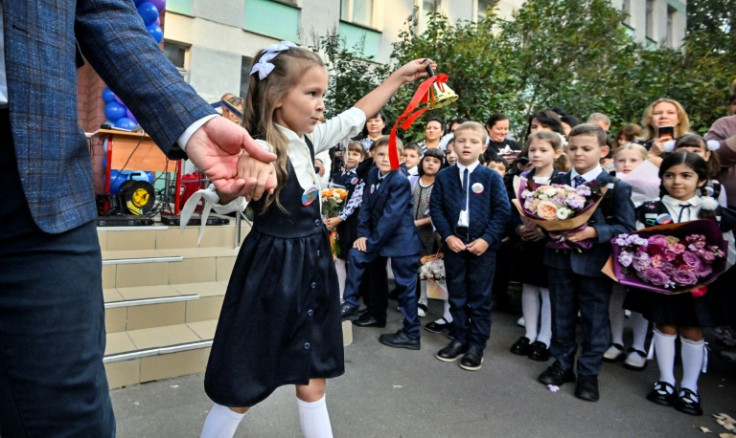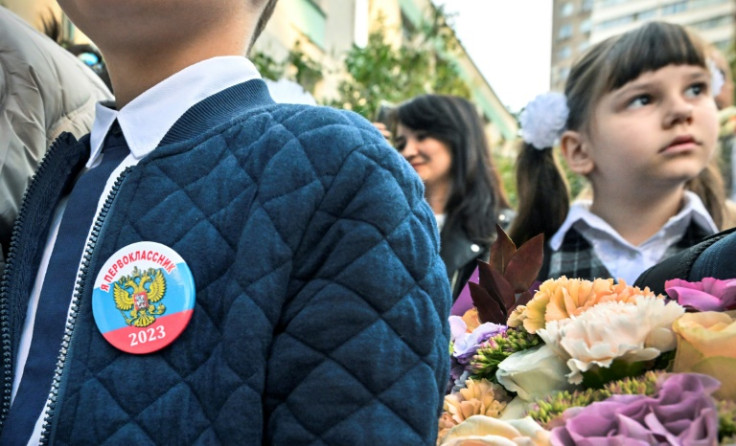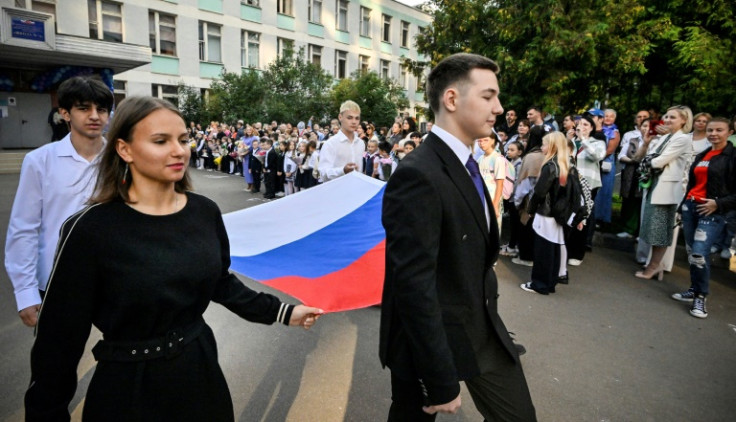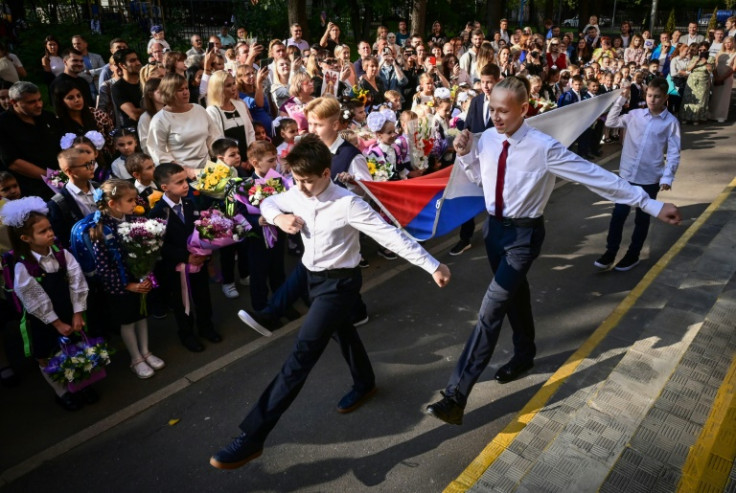Russian Parents Send Children For Patriotic School Year

Girls with big white hair bows and boys in blazers held hands as they lined up for their first day back to school in Moscow, with parents watching proudly and, for some including Sergei Angelov, anxiously.
Like children across Russia, Angelov's 12-year-old daughter will study the country's new militarised curriculum, amid Moscow's grinding assault in Ukraine that has seen increasingly frequent strikes on the Russian capital.
"We are living in difficult times," the 39-year-old driver said.
"All sorts of things are happening and can happen."
Nineteen months after Russian President Vladimir Putin launched his troops in Ukraine, drones now hit Moscow almost daily.
The conflict has spilled to schools, with a new program designed to instil the Kremlin's version of events in Ukraine to younger generations.
Since the beginning of the offensive Russia had already introduced patriotic lectures called "Important Conversations".
For the start of the new school year, Putin taught the flagship lecture in front of 30 teenagers selected for their academic achievements.
"We were absolutely invincible" during World War II, Putin said, "and we are the same now."
The Russian leader also opened a new school via video-call in the southeastern Ukrainian city of Mariupol, which was razed to the ground last spring before being seized by the Russian army.
Moscow-installed officials, who since the city's capture have undertaken to erase Ukrainian symbols from public spaces, rolled out a long Russian flag across the centre of the city.
Russian children's updated school program includes basic military training, reviving a Soviet-era subject that had long been abandoned.
Teachers are also to use a new history textbook praising the offensive, written under the curation of Putin's hardliner ally Vladimir Medinsky.
More than 2,000 kilometres (1,300 miles) eastwards in the Urals city of Yekaterinburg, local history teacher Tatiana Barabanova applauded the course book, whose cover features Putin's flagship bridge linking annexed Crimea to Russia's mainland.
"Young people are disorientated by various mass fakes slandering our country," she said, using terms reminiscent of Putin's speeches.
"In this new textbook, there are very clear examples of courage and heroism," she said.
The book praises Russia's assault on Ukraine and features sections explaining Moscow was "saving peace" in 2014 when it annexed Crimea.
Her colleague, first aid and sports teacher Yelena Sobachkina, meanwhile showed off gas masks and plastic hands with fake wounds that will be used in the new primary military preparation courses.
"They will understand what military service is like," Sobachkina said, adding it was aimed at 15- to 18-year -olds.
She said the school would also introduce the teens to "tactical training and theoretical training of combat drones."
Sobachkina plans to bring soldiers from the Ukraine front to speak to her students.
Sergei Varalov welcomed the prospect of seeing his child getting more teaching on the conflict in Ukraine.
"The political situation is such that the whole world has collapsed on us," the 55-year-old builder said.
He also expressed support for military trainings and increased patriotic education.
"We need to prepare (the children)," he said, while clarifying, "I am not saying that it should be like North Korea."
Back in Moscow, 83-year-old Nina Ivanova, watched her grandson start his new job as a teacher.
The pensioner hoped the job would "relieve him from the army" in the event that Russia would introduce another mobilisation.
In the crowd, painter Irina Dobrokhotova, just back from annexed-Crimea, was dropping her son Daniil to school.
"There are reasons for concerns... You just need to be prepared for anything and not be afraid," Dobrokhotova said.
But she added: "Everyone is hoping for the best".



© Copyright AFP {{Year}}. All rights reserved.





















